Dr DCA Hillman Biography
and other relevant information...Table of Contents
- Pronunciation of Ammon
- Bio
- Articles
- Beliefs
- Books by D.C.A. Hillman Ph.D.
- The Chemical Muse: Drug Use and the Roots of Western Civilization (Macmillan, 2008) ISBN 9781466882294
- Original Sin: Sex, Drugs, and the Church (Ronin Publishing, 2012) ISBN 1-57951-165-1
- Hermaphrodites, Gynomorphs and Jesus: She-Male Gods and the Roots of Christianity (Ronin Publishing, 2014) ISBN 1-57951-185-6
- The Tattoos
- Does Dr Hillman Horrify You?
- Frequently Asked Questions
Pronunciation of Ammon
AW-mun (A is like father; O is like Son)
Watch Dr Hillman pronounce his own name
Bio
From LadyBabylon Youtube channelAs always... Hail Satan!
From MacMillan (likely circa ~2008 when chemmuse book was published)
From SoBrief
- D.C.A. Hillman is a scholar with a unique background, holding a Ph.D. in Classics and a master's in Bacteriology.
- This combination allows him to analyze ancient medical texts with a fresh perspective.
- Hillman's work on drug use in ancient civilizations faced opposition during his doctoral studies, leading him to publish his findings independently.
- He argues that recreational drug use was widespread and culturally significant in ancient Greece and Rome, challenging conventional academic interpretations.
- Hillman's research explores the intersection of medicine, philosophy, and social norms in antiquity, offering a controversial but thought-provoking view of Western civilization's roots.
From Wikipedia
Early Life:
David Charles Ammon Hillman was born to Baptist parents in Tucson, Arizona. By the time Hillman was 17, he was teaching Sunday school and preaching at a mission, as well as studying Koine Greek and Latin. He completed an undergraduate degree in classics at the University of Arizona, and spent three months at the Dallas Theological Seminary. His exposure to classical authors such as Aristotle led him to becoming an apostate. He later pursued a master's degree in animal science, but abandoned it.
Hillman then went on to attend the University of Wisconsin–Madison, earning a master's degree in bacteriology, as well as a Ph.D. in classics with a specialization in Ancient Greek and Roman pharmacy. During this period, he spent a lot of time going over medical texts in Latin and Greek, coming across evidence that the Greeks knew about herbal concoctions such as opium, and that they used these substances recreationally.
While writing his classics dissertation at UW–Madison, Hillman was forced by his "overly conservative" advisors to delete an entire chapter he wrote on the widespread recreational drug use in the ancient world. This event inspired him to write his first book, The Chemical Muse: Drug Use and the Roots of Western Civilization in 2008. The book describes how Ancient Greeks and Romans used herbal substances for healing and creative purposes.
2008–2015: Career beginnings and firing from St. Mary's University of Minnesota
Hillman began teaching as an adjunct professor at Saint Mary's University of Minnesota, becoming a popular instructor among the students there. In the autumn of 2015, he was hired by the university's theater professor, Judy Myers, to write an original translation of the Ancient Greek tragedy Medea. In the production, which Hillman described as "authentic" and written to "maintain the historical integrity of the play," phallic ancient world objects known as fascina were used as props by cast members. The school's administrators found the play's message, as well as the use of the fascina, uncomfortable, banning the use of the objects as well as later terminating Hillman from his position entirely. Many students, as well as fellow professors, protested the firing, claiming that the school was actively censoring Hillman's freedom of speech.
2024: Danny Jones Podcast:
Hillman appeared on the Danny Jones Podcast on May 20, 2024, discussing what the ancient sources said about Christianity and the life of Jesus. His analysis reveals that the Septuagint was not a translation, but indeed the true original source of the Bible, and was mistranslated into the Hebrew language. Hillman claimed that, using his extensive knowledge of the Ancient Greek language and pharmaceutical terms, the Septuagint actually reveals that the Twelve Apostles were all prepubescent teenagers, and that Jesus was trafficking them for ritualistic and drug-related purposes. A particular occurrence he finds interest in is within the Gospel of Mark, where it is described that a naked youth, seemingly wearing nothing but a linen garment, is seen running away naked from the site of Jesus' arrest in the Garden of Gethsemane. Hillman claims that what the Ancient Greek actually describes is that the naked youth was not wearing a linen garment, but instead a medicated bandage around his penis, from where Jesus was extracting an antidote to the Dipsas venom he had taken recreationally. He further claims that Jesus actually died of an overdose of this venom during his crucifixion, as the antidote was interrupted by the arrest and thus unavailable to save his life.
Articles
Beliefs
From The Mystery
Knowing yourself is a hell of a lot better than believing in empty promises, lies, thievery, obfuscation, infidelity, which by the way should be punished.
Dr Hillman stated his beliefs in the Polarity interview. Wisdom, Evidence, the divinity of nature.
Books by D.C.A. Hillman Ph.D.
- At Amazon: https://www.amazon.com/stores/author/B001IU0IIK?ccs_id=b524b0f7-f62a-49f0-a77e-11fe9b6994a9
The Chemical Muse: Drug Use and the Roots of Western Civilization (Macmillan, 2008) ISBN 9781466882294
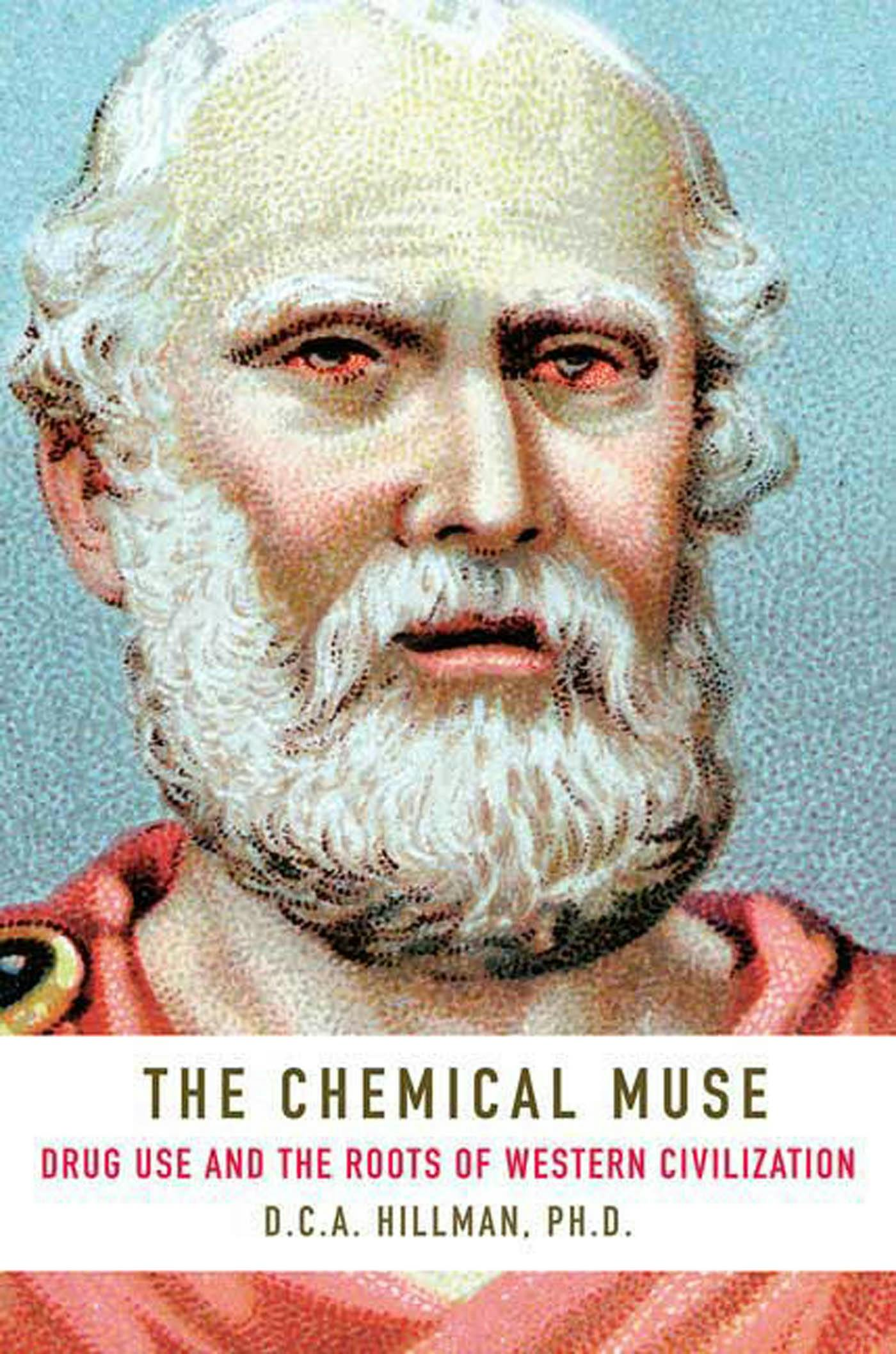
The Chemical Muse uncovers decades of misdirection and obfuscation to reveal the history of widespread drug use in Ancient Rome and Greece. In the city-states that gave birth to Western civilization, drugs were an everyday element of a free society. Often they were not just available, but vitally necessary for use in medicine, religious ceremonies, and war campaigns. Their proponents and users existed in all classes, from the common soldier to the emperor himself.
Citing examples in myths, medicine, and literature, D. C. A. Hillman shows how drugs have influenced and inspired the artists, philosophers, and even politicians whose ideas have formed the basis for civilization as we know it. Many of these ancient texts may seem well-known, but Hillman shows how timid, prudish translations have left scholars and readers in the dark about the reality of drug use in the Classical world.
Hillman's argument is not simply "pro-drug." Instead, he appeals for an intellectual honesty that acknowledges the use of drugs in ancient societies despite today's conflicting social mores. In the modern world, where academia and university life are often politically charged, The Chemical Muse offers a unique and long overdue perspective on the contentious topic of drug use and the freedom of thought."
Reviews:
- “The role of psychoactive drugs has been airbrushed out of the conventional picture of Western civilization. The academics who have created this drug-free Greco-Roman world have found their nemesis in Dr. Hillman's The Chemical Muse. With clarity and directness the author gives us back a lost chapter of our Classical heritage and by doing so restores our understanding of this past.” —Richard Rudgley, author of Lost Civilizations of the Stone Age
- “In addition to demonstrating the importance of medicinal botanicals and chemicals in alleviating the sufferings of humanity in the ancient Greco-Roman world, Dr. Hillman unveils the role that many of them played as recreational drugs, not for the lunatic fringes of society, but as sources of knowledge and religious sacraments by the leading artists, thinkers, and politicians, central to the very formation of what we admire and enshrine as the Classical tradition. The Chemical Muse inspired democracy itself and the greatest minds of antiquity.” —Carl A. P. Ruck, author of Sacred Mushrooms: The Secrets of Eleusis
- “David Hillman has given us a penetrating insight into our permanent romance with altered consciousness. This important work is a myth-buster.” —Mike Gray, author of Drug Crazy and The China Syndrome
Original Sin: Sex, Drugs, and the Church (Ronin Publishing, 2012) ISBN 1-57951-165-1
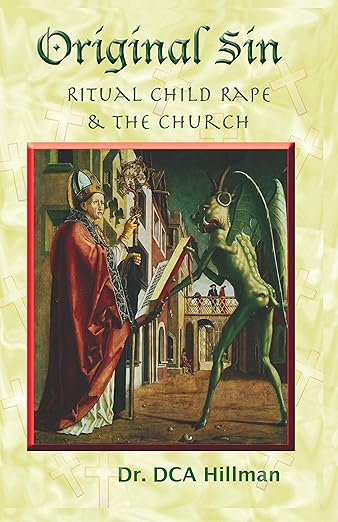
Hermaphrodites, Gynomorphs and Jesus: She-Male Gods and the Roots of Christianity (Ronin Publishing, 2014) ISBN 1-57951-185-6
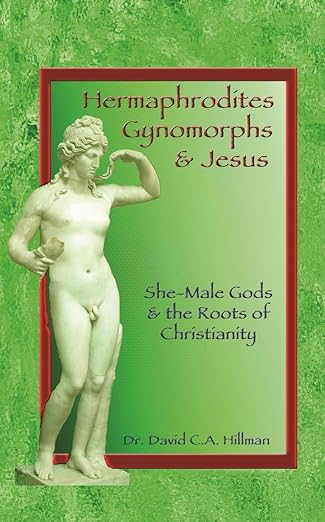
The Tattoos
| "Medea" in Etruscan | "Medea" in Ancient Greek | "Medea" in Linear B |
|---|---|---|
 | 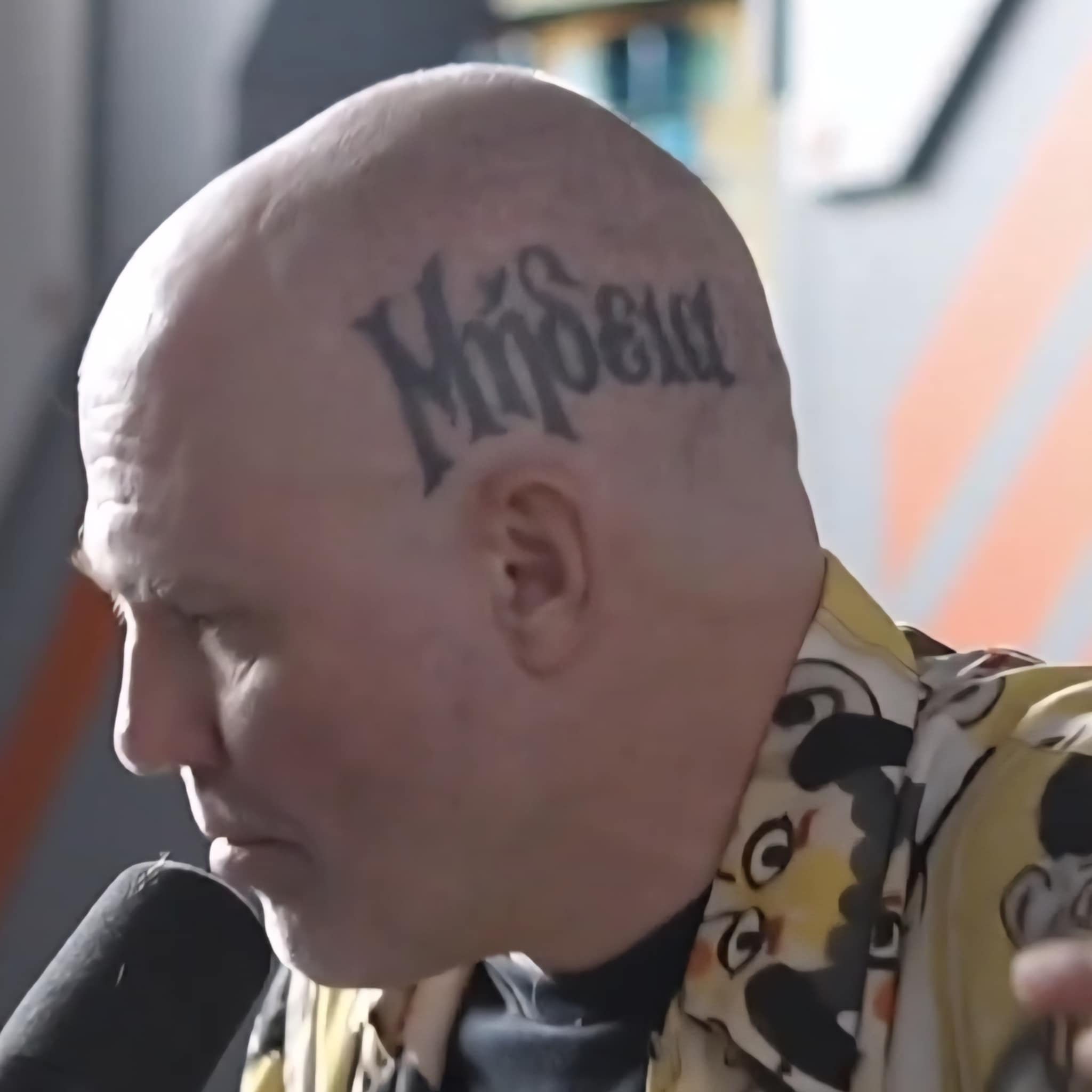 |  |
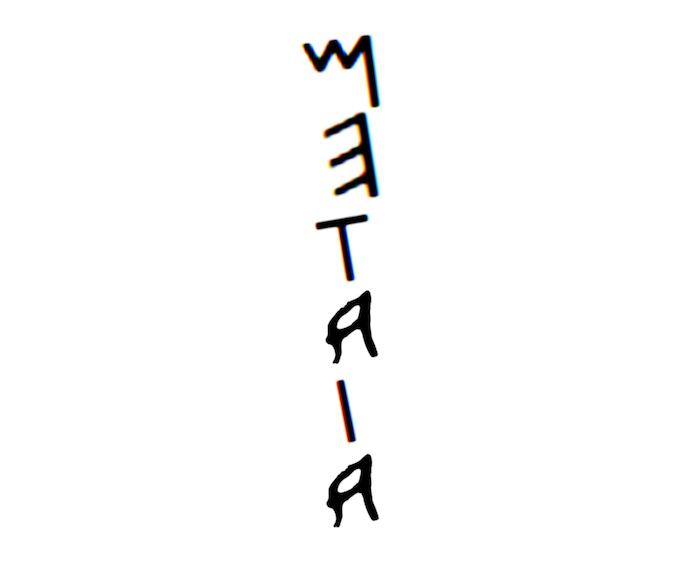 | 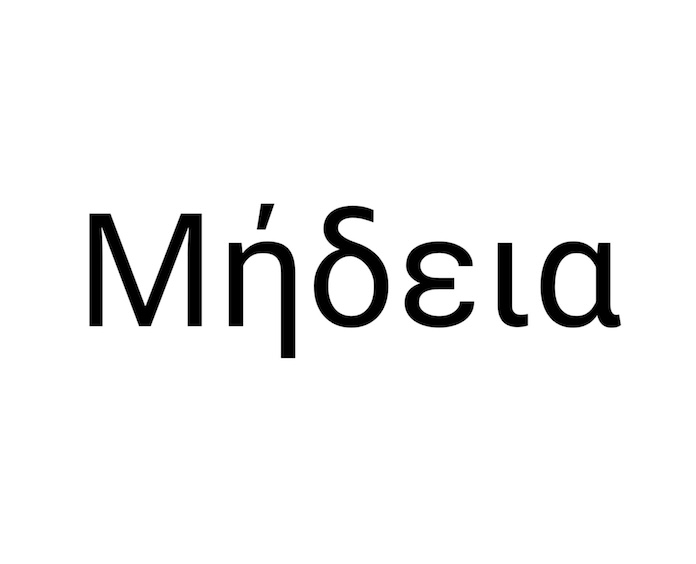 | 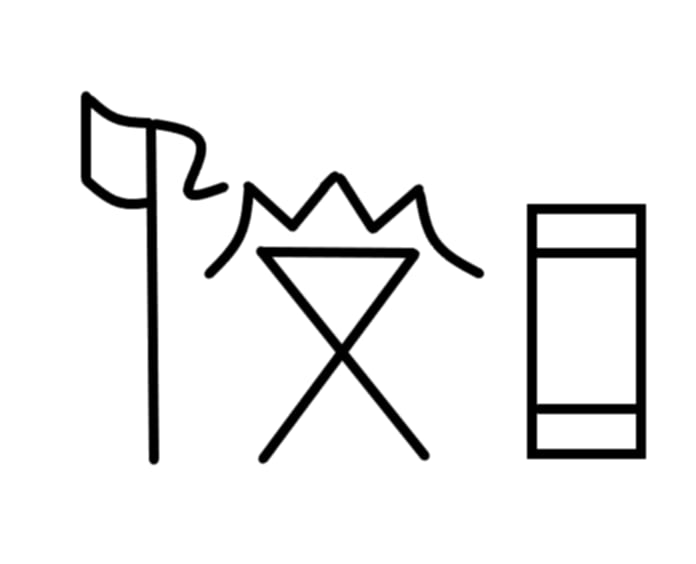 |
| 𐌌𐌄𐌕𐌀𐌉𐌀 me ta ay a | Μήδεια may di a | 𐀕𐀆𐀊 me de ja |
| Arm Tatoos in Ancient Greek |
|---|
 |
| Πρίηπος Ερινύς ?όμιος Priapos Erinus ?omios |
Does Dr Hillman Horrify You?
If so, then here's what he has to say to you[link]
Frequently Asked Questions
- see the FAQ